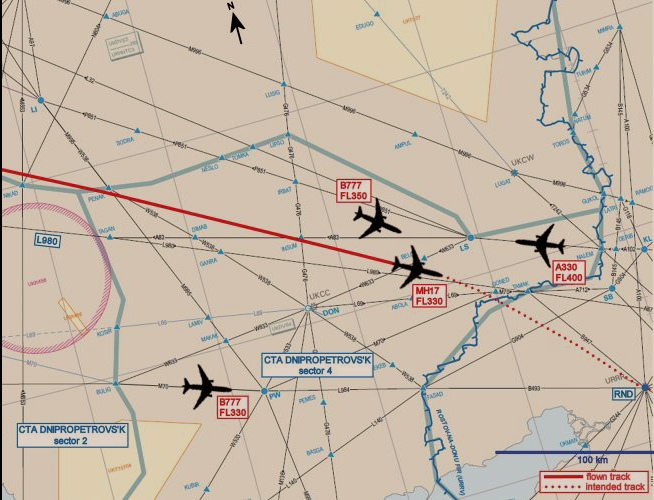

On July 17th, 2014 a Malaysia Airlines Boeing B 777-200, bound from Amsterdam to Kuala Lumpur, was shot down by a ground to air missile over Eastern Ukraine. On the same day, many other airlines used exactly the same routing – and each of them could have been hit by this weapon. Some airlines however seemed to have access to information that left no other option than avoiding this part of the world. Consequently, the most logical conclusion of this tragic accident (298 passengers and crew lost their lives) was to assure that the members of the European Union would set up an information exchange system that would help preventing such a tragic loss of life in the future.

Now, almost three years after this event, we see that obviously such cooperation on security matters does not work as many had hoped. The United Kingdom (still part of the EU) recently decided – for security reasons – to put a ban on personal electronic devices (PED) that passengers traveling from six selected countries wish to bring on board. Instead, these devices now have to be carried in the checked baggage and they consequently are loaded in the cargo hold of aircraft (as is the case in the US, since the introduction of a similar ban there). But the other EU Member States seem to come to a different conclusion and publicly state that the safety implications of carrying a large amount of PEDs in the non-accessible cargo hold of aircraft by far outweighs the security risk. If only one of the lithium batteries of such a PED caused a fire during flight, the nightmare of every pilot would become reality and – I am sure you would agree – that this risk needs to be eliminated under all circumstances.
But, what if the UK & US intelligence have clear proof for a security threat, originating in specific countries or regions? What, if there is a real possibility and likelihood that explosives are brought on board of an airliner, hidden in a laptop or a tablet computer? In this case, shouldn’t all countries affected by this threat know about the precise nature of that threat and its magnitude, and shouldn’t all airlines and airports take the appropriate steps (but which may actually not be a ban)? A clear “Yes” from us, from those who are operating these aircraft and from those airports!
So we ask those who promised that a tragedy like MH 17 will never happen again, to keep this promise and to take all necessary steps, to keep passengers and crews safe & secure! It’s time for EU Member States to cooperate!
by Capt. Dirk Polloczek, ECA President